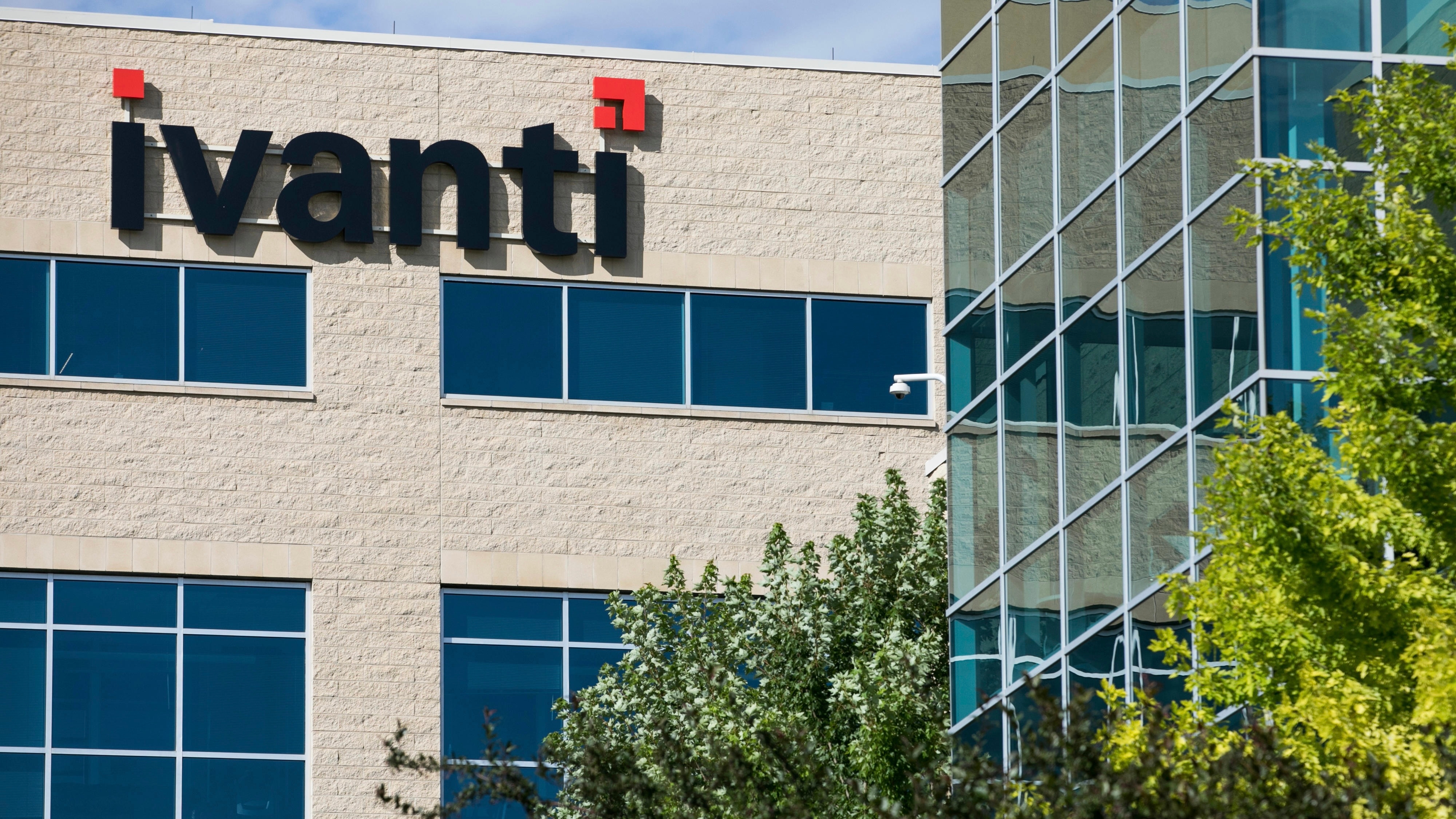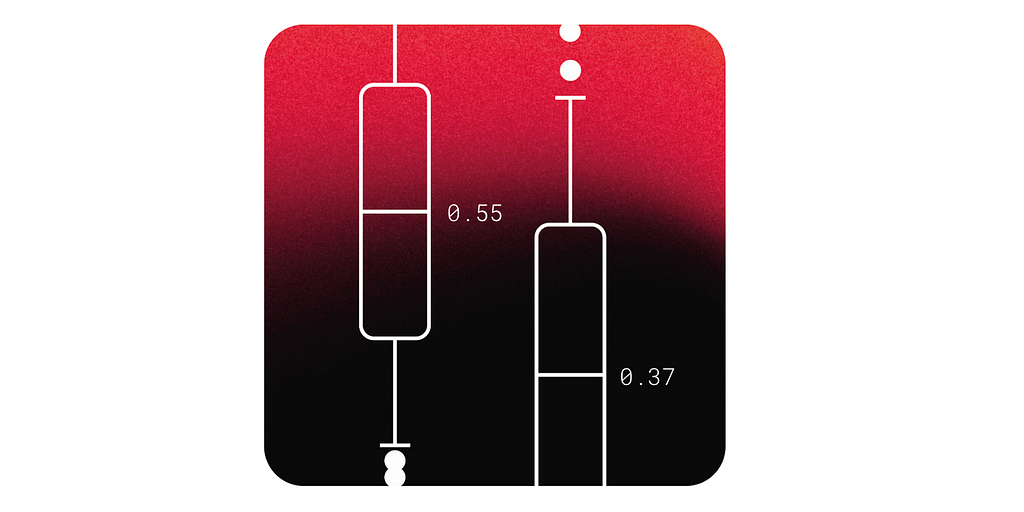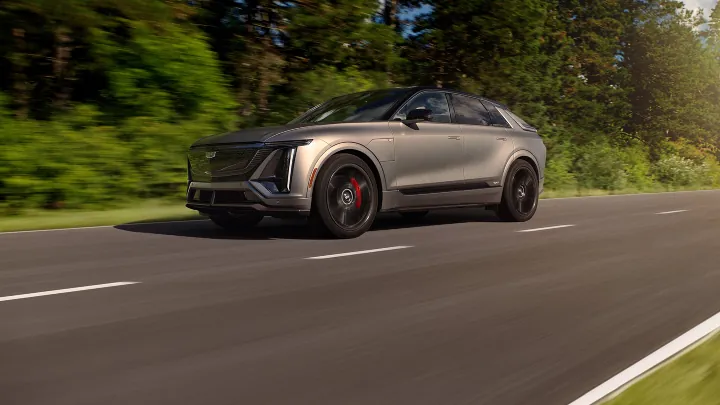Dell vs. HP: Which laptop brand is better?
Dell and HP are two of the biggest laptop brands for good reason. They both make plenty of great PCs, and whether you’re buying a laptop for school, work, gaming, everyday productivity, or all of the above, you’ll find lots of good machines from both brands. Seriously, no brand is best in all situations! That’s what we’ve seen throughout our laptop reviews. The best brand for you depends on what you’re looking for, the type of laptop you’re buying, and the prices you can afford — and the right laptop sale could change the whole calculus. You’ll find a mix of both Dell and HP laptops, plus laptops from many other manufacturers, on our best laptop lists here at PCWorld. But there’s a lot to be said for comparing these brands. So, let’s take a closer look. Dell vs. HP laptop product ranges Both Dell and HP offer a wide range of different laptops for different needs, from budget picks to premium stunners. Dell offers a variety of laptop lineups, including the premium XPS laptop line as well as Latitude and Inspiron laptops for business and consumer use. There’s also the Precision line of workstation-class laptops. HP rebranded its laptop lineup in May 2024. Now, it offers OmniBook laptops for consumers and ProBook and EliteBook laptops for business use. You’ll still find older HP laptops with names like Spectre, Dragonfly, and Envy, but HP’s forward naming scheme is greatly simplified. For gaming laptops, Dell offers models under both the higher-end Alienware brand as well as its more bargain-priced G series machines. HP offers gaming laptops under the more premium Omen line as well as the more value-priced Victus branding. Dell laptops are usually more configurable Dell laptops tend to be more configurable than HP laptops at the point of sale — at least if you’re buying on Dell’s online store. You’ll often find a much wider variety of options and upgrades, including CPU, RAM, GPU, storage, and other hardware components. This doesn’t matter if you’re buying a prebuilt laptop, of course, nor does it matter if you’d rather grab sales on Amazon, Best Buy, Newegg, etc. But if you’re buying straight from the manufacturer, there’s no doubt that Dell’s store is more flexible than HP’s online store. Dell vs. HP laptops for productivity If you’re shopping for a consumer or business productivity laptop for work, school, or personal use, then rest assured that both Dell and HP offer a wide range of great options. Whether you’re looking for a Copilot+ PC with special AI features, or a thin-and-light laptop that gets excellent battery life, or a value workstation that provides great performance, both Dell and HP deliver. Both manufacturers offer machines fitted with Intel, AMD, and Qualcomm chips — you’re spoiled for choice here. For productivity, Dell offers XPS, Inspiron, and Latitude laptops. The differences between them in a nutshell: XPSes are traditionally flagship, premium, thin-and-light laptops; Inspirons tend to be more all-rounders; and Latitudes tend to be lighter and longer lasting on a single charge. Dell’s Precision laptops are high-performance mobile workstations. HP, on the other hand, has simplified its offerings into the OmniBook line for consumers and EliteBook and ProBook lines for businesses. You’ll still see older Spectre, Envy, and Dragonfly machines floating around, too. HP OmniBook Ultra Flip 14Josh Hendrickson / IDG Each manufacturer offers a wide range of laptops under these names, making it difficult to compare. For example, if you want a 2-in-1 laptop with a 360-degree hinge, we love the HP OmniBook Ultra Flip 14 (at Best Buy) and the Dell Inspiron 14 2-in-1 (at Best Buy). Dell Inspiron 14 PlusMark Knapp / IDG For a classic clamshell laptop experience, we like the Dell Inspiron 14 Plus (at Best Buy) and give it high scores. But I was also impressed with the HP OmniBook Ultra 14 (at Best Buy) when I went hands-on with it. Dell vs. HP laptops for businesses For business users, Dell offers a wide range of Inspiron and Latitude laptops aimed at business use while HP offers a large number of ProBook and EliteBook laptops as well. With a wide variety of prices and hardware configurations, it’s hard to pass judgement on either laptop manufacturer as a whole in this area. However, it’s worth noting that neither Dell nor HP are considered as premium in the business laptop space as Lenovo’s range of high-end ThinkPad business laptops, which tend to offer better keyboards and other high-end touches — at a higher-end price, of course. When shopping, be sure to compare laptop to laptop. Neither laptop manufacturer has the best entry in every category, and the winner may vary from year to year and model to model. Dell vs. HP laptops for gaming For premium gaming laptops, Dell offers Alienware-branded laptops while HP offers Omen-branded laptops. I’ve used both Alienware and Omen laptops. Both tend

Dell and HP are two of the biggest laptop brands for good reason. They both make plenty of great PCs, and whether you’re buying a laptop for school, work, gaming, everyday productivity, or all of the above, you’ll find lots of good machines from both brands.
Seriously, no brand is best in all situations! That’s what we’ve seen throughout our laptop reviews. The best brand for you depends on what you’re looking for, the type of laptop you’re buying, and the prices you can afford — and the right laptop sale could change the whole calculus.
You’ll find a mix of both Dell and HP laptops, plus laptops from many other manufacturers, on our best laptop lists here at PCWorld. But there’s a lot to be said for comparing these brands. So, let’s take a closer look.
Dell vs. HP laptop product ranges
Both Dell and HP offer a wide range of different laptops for different needs, from budget picks to premium stunners.
Dell offers a variety of laptop lineups, including the premium XPS laptop line as well as Latitude and Inspiron laptops for business and consumer use. There’s also the Precision line of workstation-class laptops.
HP rebranded its laptop lineup in May 2024. Now, it offers OmniBook laptops for consumers and ProBook and EliteBook laptops for business use. You’ll still find older HP laptops with names like Spectre, Dragonfly, and Envy, but HP’s forward naming scheme is greatly simplified.
For gaming laptops, Dell offers models under both the higher-end Alienware brand as well as its more bargain-priced G series machines. HP offers gaming laptops under the more premium Omen line as well as the more value-priced Victus branding.
Dell laptops are usually more configurable
Dell laptops tend to be more configurable than HP laptops at the point of sale — at least if you’re buying on Dell’s online store. You’ll often find a much wider variety of options and upgrades, including CPU, RAM, GPU, storage, and other hardware components.
This doesn’t matter if you’re buying a prebuilt laptop, of course, nor does it matter if you’d rather grab sales on Amazon, Best Buy, Newegg, etc. But if you’re buying straight from the manufacturer, there’s no doubt that Dell’s store is more flexible than HP’s online store.
Dell vs. HP laptops for productivity
If you’re shopping for a consumer or business productivity laptop for work, school, or personal use, then rest assured that both Dell and HP offer a wide range of great options.
Whether you’re looking for a Copilot+ PC with special AI features, or a thin-and-light laptop that gets excellent battery life, or a value workstation that provides great performance, both Dell and HP deliver. Both manufacturers offer machines fitted with Intel, AMD, and Qualcomm chips — you’re spoiled for choice here.
For productivity, Dell offers XPS, Inspiron, and Latitude laptops. The differences between them in a nutshell: XPSes are traditionally flagship, premium, thin-and-light laptops; Inspirons tend to be more all-rounders; and Latitudes tend to be lighter and longer lasting on a single charge. Dell’s Precision laptops are high-performance mobile workstations.
HP, on the other hand, has simplified its offerings into the OmniBook line for consumers and EliteBook and ProBook lines for businesses. You’ll still see older Spectre, Envy, and Dragonfly machines floating around, too.
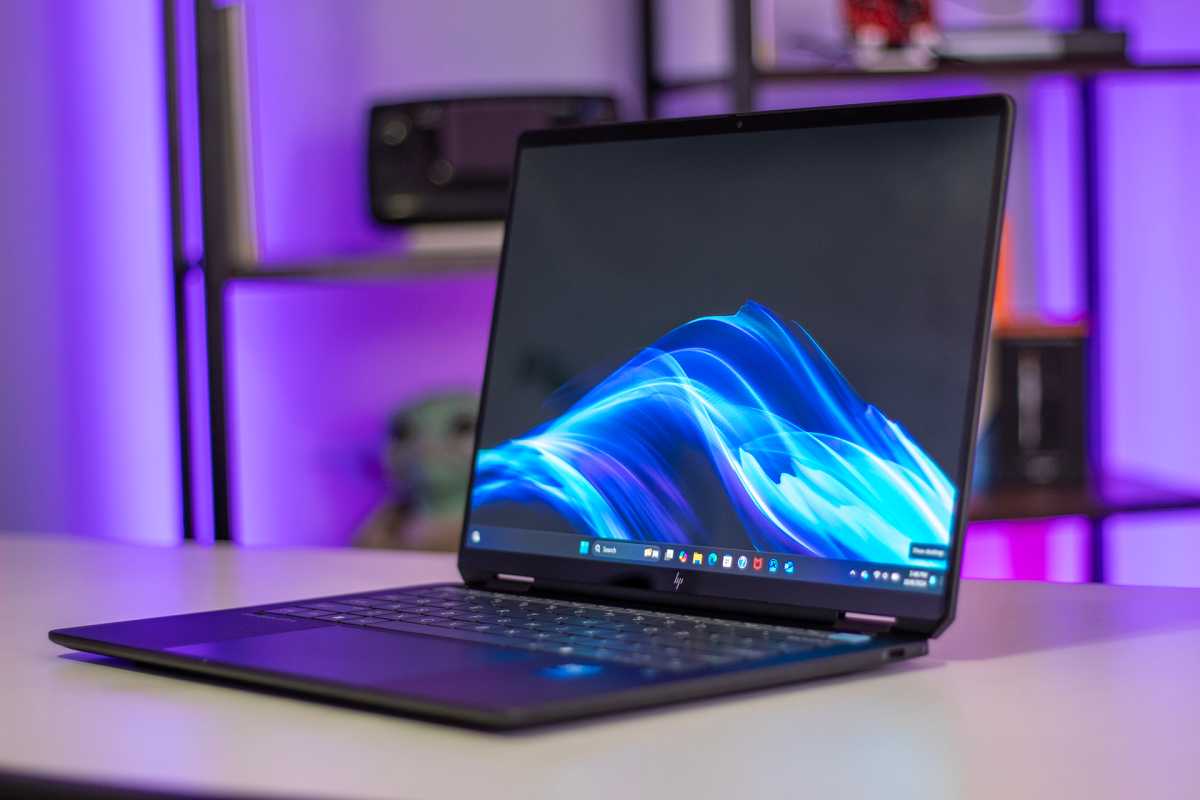
Josh Hendrickson / IDG
Each manufacturer offers a wide range of laptops under these names, making it difficult to compare. For example, if you want a 2-in-1 laptop with a 360-degree hinge, we love the HP OmniBook Ultra Flip 14 (at Best Buy) and the Dell Inspiron 14 2-in-1 (at Best Buy).
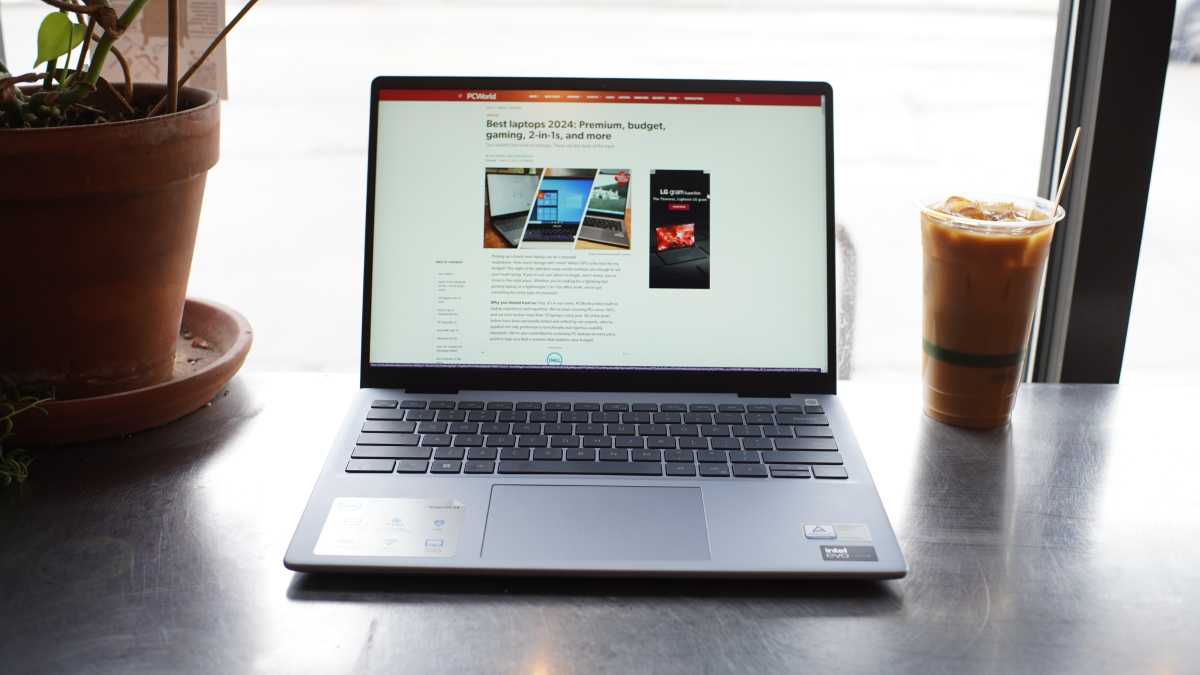
Mark Knapp / IDG
For a classic clamshell laptop experience, we like the Dell Inspiron 14 Plus (at Best Buy) and give it high scores. But I was also impressed with the HP OmniBook Ultra 14 (at Best Buy) when I went hands-on with it.
Dell vs. HP laptops for businesses
For business users, Dell offers a wide range of Inspiron and Latitude laptops aimed at business use while HP offers a large number of ProBook and EliteBook laptops as well. With a wide variety of prices and hardware configurations, it’s hard to pass judgement on either laptop manufacturer as a whole in this area.
However, it’s worth noting that neither Dell nor HP are considered as premium in the business laptop space as Lenovo’s range of high-end ThinkPad business laptops, which tend to offer better keyboards and other high-end touches — at a higher-end price, of course.
When shopping, be sure to compare laptop to laptop. Neither laptop manufacturer has the best entry in every category, and the winner may vary from year to year and model to model.
Dell vs. HP laptops for gaming
For premium gaming laptops, Dell offers Alienware-branded laptops while HP offers Omen-branded laptops.
I’ve used both Alienware and Omen laptops. Both tend to have premium build quality with lots of metal in their laptop chassis. Some people may even say that Alienware laptops have better build quality than Omen laptops on the whole, but I’m not sure that’s true these days. Based on my hands-on experience, Alienware and Omen laptops with similar hardware at similar price points are pretty comparable.
That said, Alienware does tend to offer more expensive and higher-end options that Omen laptops usually can’t match. For example, you can get a massive 18-incher like the Dell Alienware m18 R2 (at Best Buy) while Omen tops out at 17 inches with the HP Omen 17 (at Best Buy).
High-end Alienware machines like the Dell Alienware x16 R2 (at Best Buy) offer premium features like a mechanical keyboard and shockingly-good-for-a-laptop speakers. I was impressed by some of this laptop’s touches. And keeping with Dell’s configurability, it’s easier to find an Alienware machine with Nvidia GeForce RTX 4090 graphics or upgrade a laptop to an Intel Core i9 CPU if you want to go all-out.
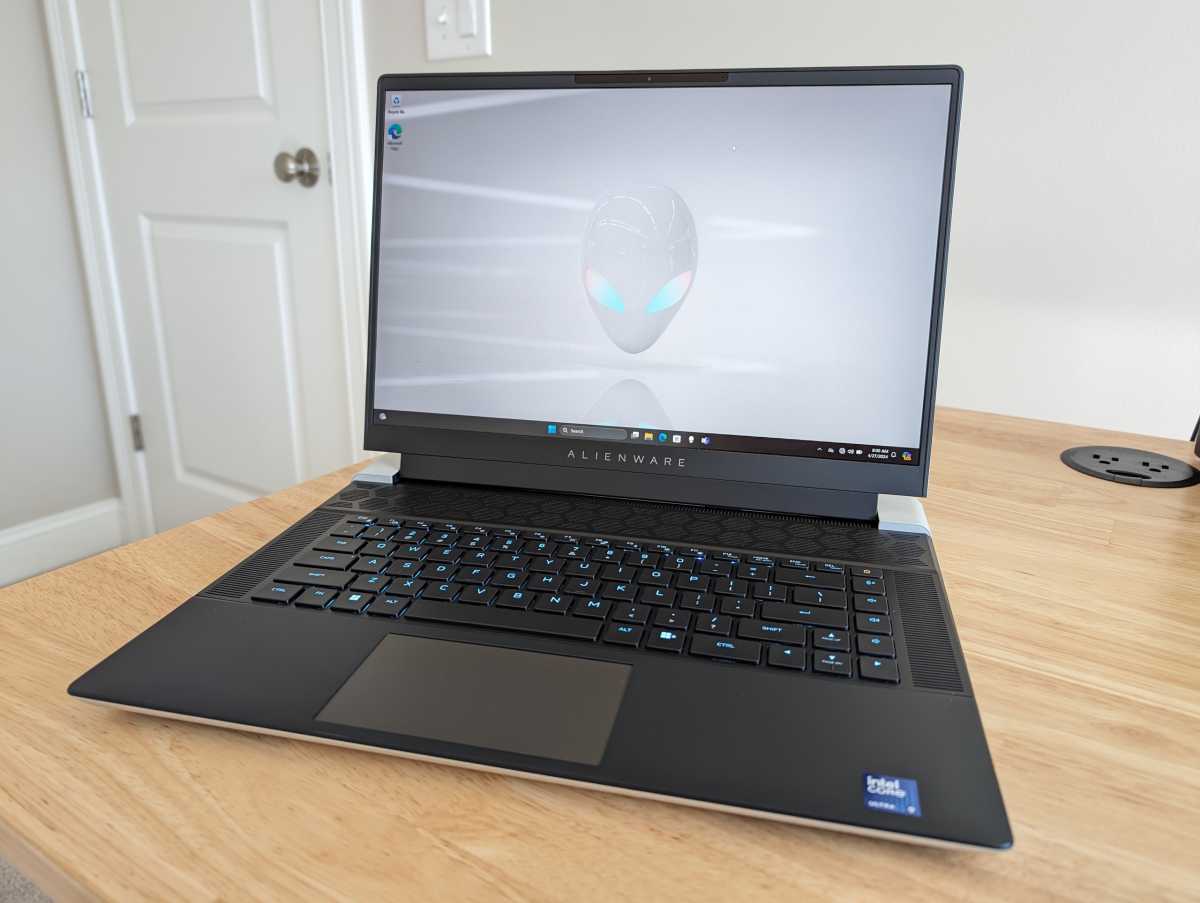
Chris Hoffman / IDG
HP’s Omen line tends to have a larger number of more compact and portability-focused options. I enjoyed my time with the HP Omen Transcend 14 (at Best Buy), which prioritizes portability over raw power. Alienware doesn’t currently offer a 14-inch gaming laptop, as the older Dell Alienware x14 is out of stock on Dell’s online store and hasn’t been updated in a few years.
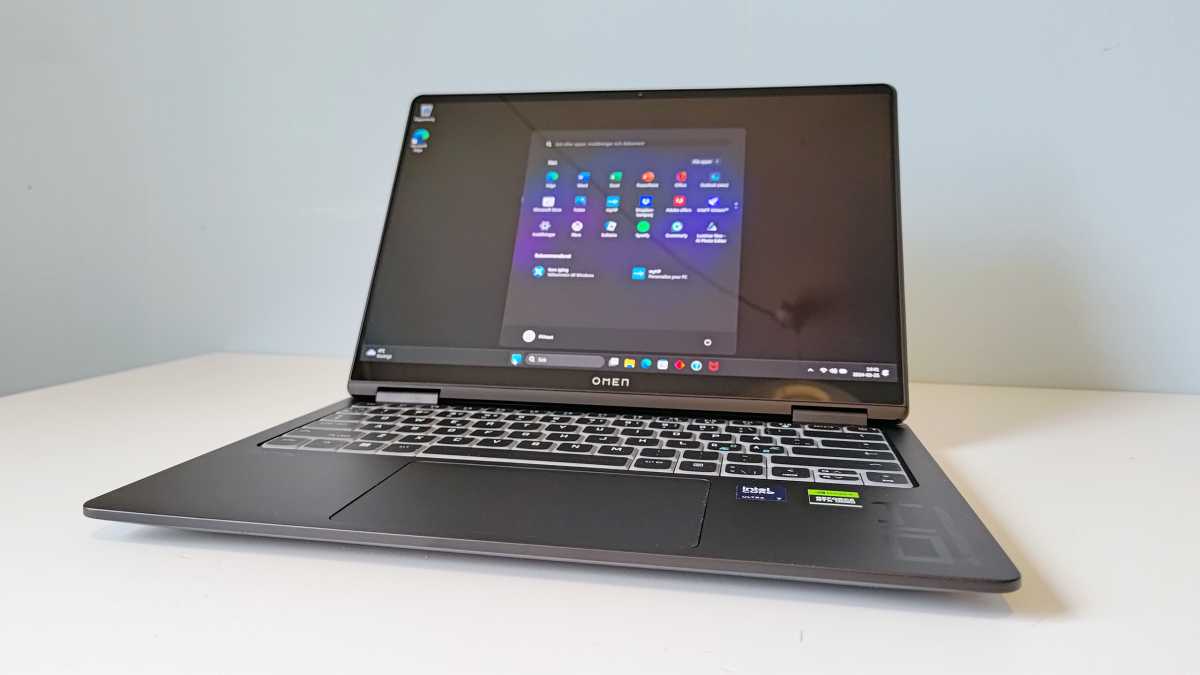
Mattias Inghe / IDG
Overall, Alienware is focused on larger and higher-end gaming machines. If money was no object and I was looking at both Alienware and Omen machines, I’d lean towards high-end Alienware machines. But at the “mid-range premium” price point for gaming laptops, both HP Omen and Dell Alienware offer many competitive options.
No laptop is perfect, of course, and every machine has its downsides. When comparing gaming laptops, it’s more important to compare laptop to laptop, looking for reviews of the specific machines you’re interested in. That’s what it will come down to.
Dell vs. HP for budget gaming laptops
For more budget-focused gaming laptops, Dell offers its G series laptops while HP offers its Victus line of laptops.
Compared to each manufacturer’s premium offerings, these laptops use more plastic and less metal. The designs also aren’t as “gamer-focused” with fewer LEDs and less RGB bling. They may have other trade-offs like shorter-than-usual battery life and a mediocre keyboard, too.
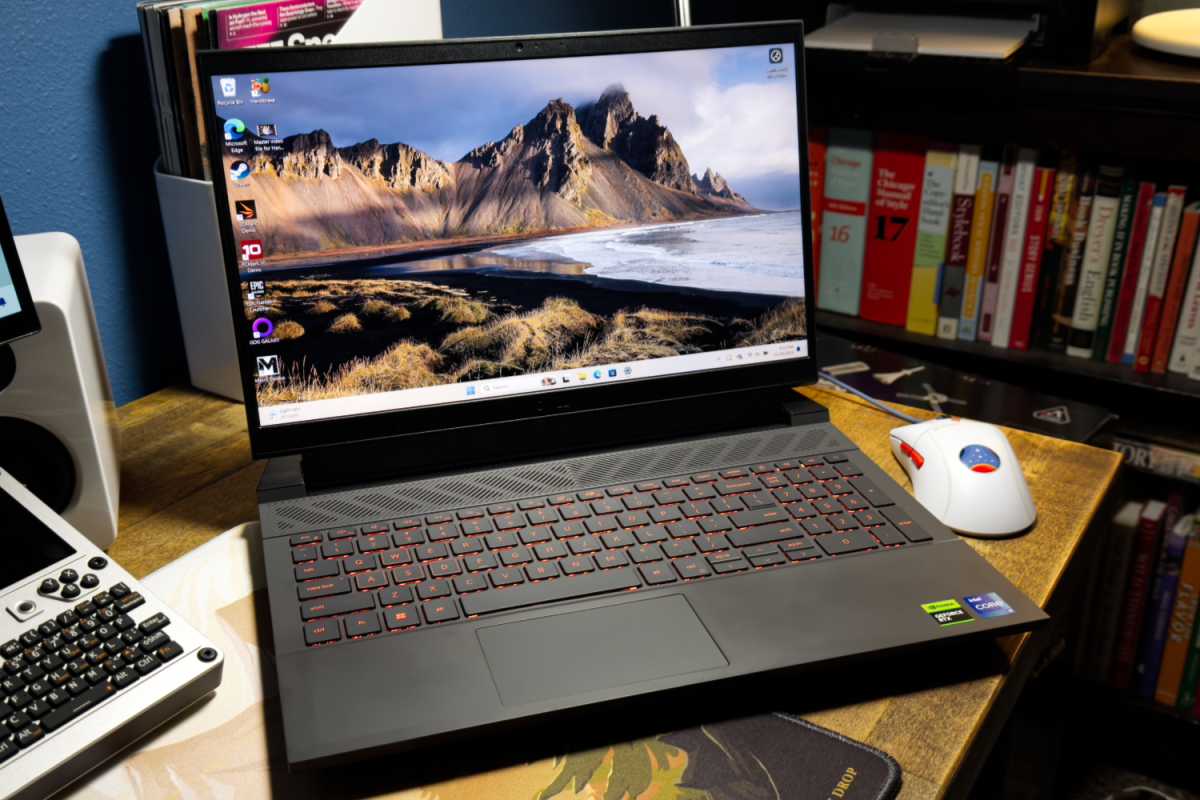
Matthew Smith / IDG
Still, we’ve given machines like the Dell G15 (at Best Buy) and HP Victus 15 (at Best Buy) solid ratings here at PCWorld. These two delivered strong gaming performance at a good price in our hands-on tests — and that’s exactly what you’d want from budget gaming laptops like these.
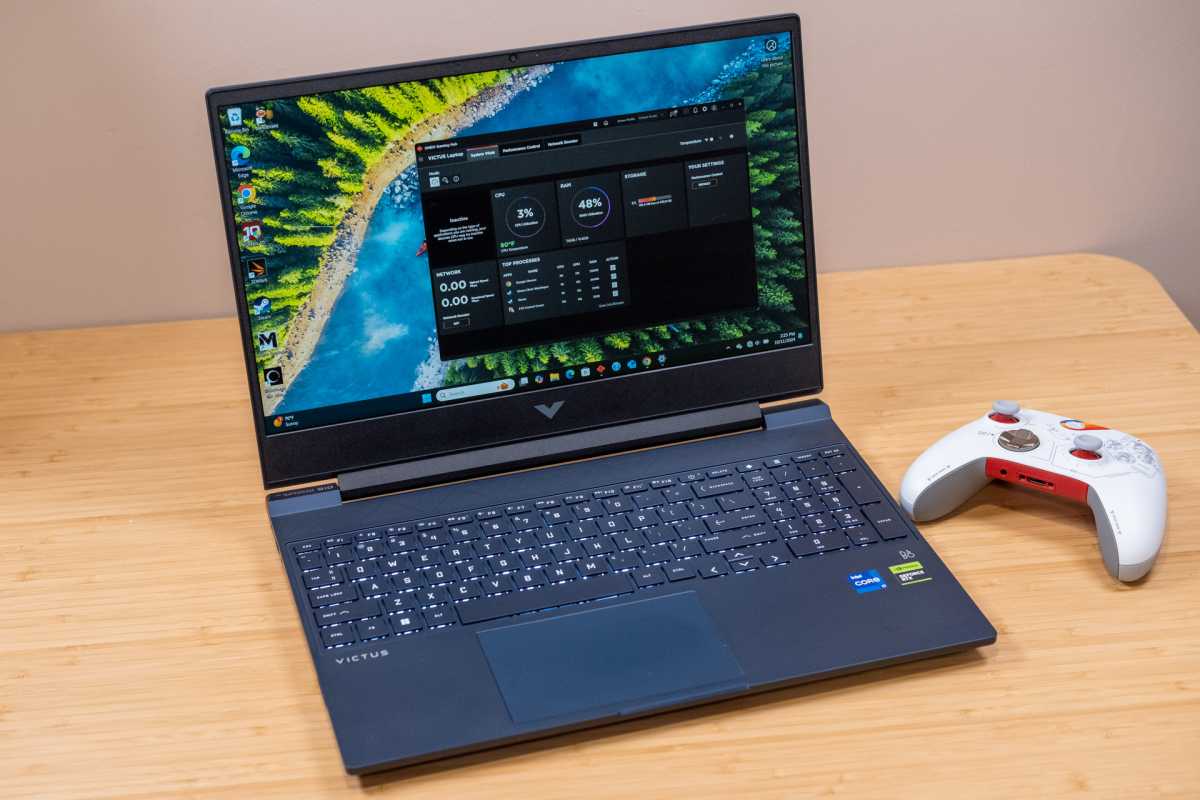
Ryan Whitwam / IDG
Again, it will come down to the difference between each individual laptop. And sales may muddle things further, possibly making a more premium Alienware or Omen laptop a better deal to snatch.
Dell vs. HP for Chromebooks
When it comes to Chromebooks, HP offers a wider range of options as of this writing. HP offers the mid-range HP Chromebook Plus (at Best Buy) with an Intel Core i3 processor, which provides a higher-quality experience if you plan on using your Chromebook as your main laptop.
Dell has a smaller selection of Chromebooks with low-power CPUs aimed at schools — no Chromebook Plus options here. However, for schools looking for the least expensive possible machines, Dell’s budget-focused Chromebooks are pretty good for their prices.
Dell vs. HP: Which laptop brand is best?
Both Dell and HP are solid laptop manufacturers that make a variety of good laptops, and both are good choices for your next laptop. Neither manufacturer consistently bests the other in our laptop reviews.
Each has lots of different products though, so take care when shopping. Look at reviews and comparisons for specific laptop models rather than particular brands or product lines. We’ve given high scores and low scores to both, so neither brand is a sure-fire winner.
Still feel like you need some guidance? Dive straight into our recommendations for the best Chromebooks, best laptops under $500, best gaming laptops, and today’s best laptop deals!
What's Your Reaction?

























